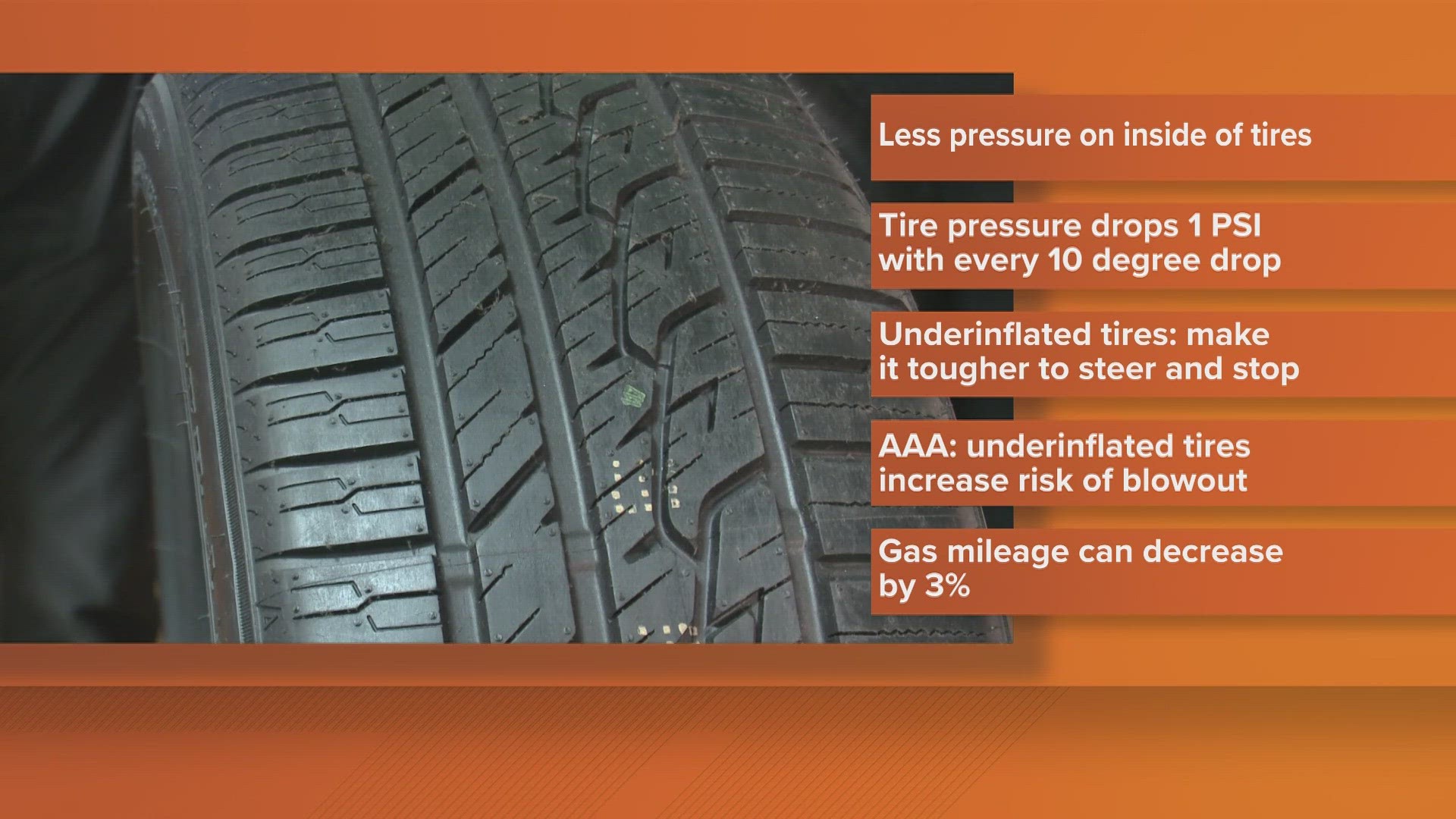PORTLAND, Maine — Winter is right around the corner, and that means getting your car ready for colder weather.
Maine hasn't seen much snow yet, but we're beginning to see how cold air affects our vehicles, specifically our tires.
Over the past couple days, you probably got in your car, turned it on, and panicked because the tire pressure light was on.
You're left thinking, "Does my tire have a leak? Is there a flat?" Either are possible, but it more likely has to do with how cold the temperatures have been the past few mornings.
It has to do with how temperatures affect the air. The molecules that make up air are always moving. When it's hot, those molecules are fast-moving, and the air expands. When it's cold, these molecules slow down and the air contracts, which means the air takes up less space and now puts less pressure on the inside of the tires.
AAA says your tires lose about 1 pound per square inch (PSI) for every ten degrees the temperature drops.
RELATED: NEWS CENTER Maine Weather Forecast
There are a few concerns when it comes to driving with low tire pressure. An underinflated tire makes it more difficult to steer and stop, increasing your risk of a crash.
AAA says one of the biggest concerns is a tire blowout. An underinflated tire has more contact with the road, increasing friction and heat. The air inside the tire can become too hot, causing a portion of the rubber to come loose, leading to a blowout.
It'll cost you, too. The United States Department of Energy says improperly inflated tires can decrease your gas mileage by up to 3%. We don't all have tire pressure sensors in our cars, so if you don't, AAA recommends checking your tire pressure twice a month in the winter.

